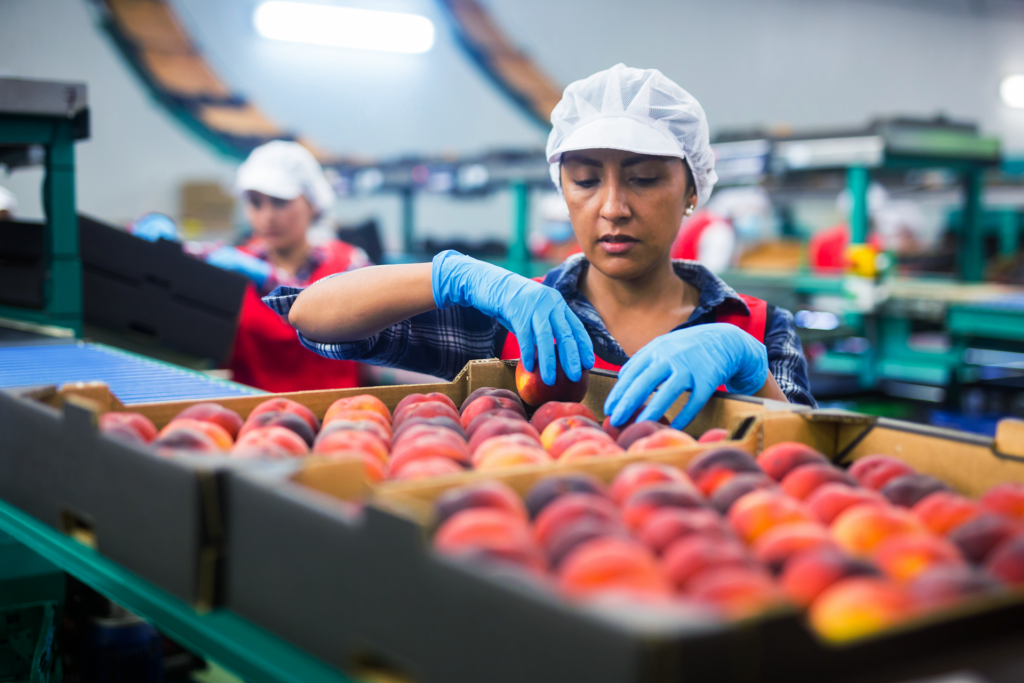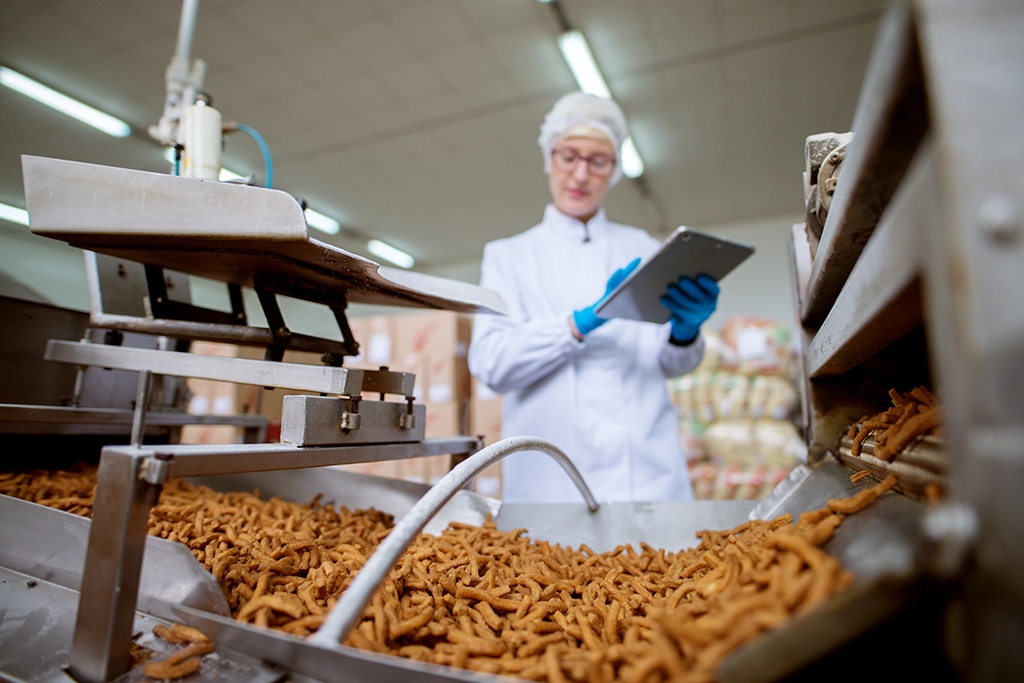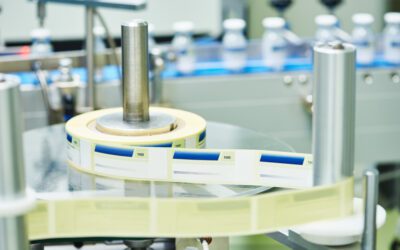If you’re seeking to elevate your food safety management system to the highest international standards, FSSC 22000 certification may be the key.
In this article, we answer your questions, such as, “What is FSSC 22000?”, “How do I get FSSC 22000 certification”, and more.
What is FSSC 22000?
FSSC stands for Food Safety System Certification.
It is an internationally recognized accreditation designed to ensure safety throughout your entire food supply chain. FSSC 22000 is recognized by the Global Food Safety Initiative and is a GFSI-benchmarked certification.
The FSSC 22000 standard provides production and management processes to ensure consistency, transparency, and safety throughout your entire supply chain. The standard applies to any company in the food and beverage industry, from farmers to retailers.
By meeting requirements and achieving FSSC 22000 certification, you demonstrate that your organization meets food quality requirements and implements processes to manage and reduce the hazards posed by food fraud, foodborne illness, costly recalls, and other external threats.

What is the Current FSSC 22000 Version?
As of this writing, FSSC 22000 Version 6 is current. However, there is a 12-month window between versions, and companies that are already certified to Version 5.1 have until April 1, 2024 to prepare; after that date, all FSSC 22000 audits will be conducted against Version 6 standards.
FSSC itself recommends auditing to Version 6 as soon as possible, however.
For Whom is FSSC 22000 Certification Intended?
FSSC 22000 standards are applicable to any food industry organization, including the following:
- Farmers
- Manufacturers
- Transporters
- Packagers
- Retailers
Every stage in the supply chain benefits from increased consistency and transparency, ensuring that a quality product will reach the end consumer.

What Does FSSC 22000 Cover?
FSSC 22000 is designed to be comprehensive, leaving no part of the food and beverage supply chain out of the framework to ensure end-to-end safety. It covers the following:
- Farming animal productions such as meat, milk, eggs, and honey
- Farming fish and other seafood
- Processing perishable plant, animal, and mixed products
- Processing products with a long shelf life
- Production of pet food
- Catering
- Both retail and wholesale
- Transportation and storage of both perishable and non-perishable food and feed
- Production of food packaging materials
- Production of biochemicals
In other words, an FSSC 22000 certification ensures that every aspect of a food product’s manufacture is risk-managed, giving your organization full protection and the end consumer peace of mind.
FSSC 22000 Components
To achieve this comprehensive coverage, an FSSC 22000 certification is made up of three major components:
- ISO 22000, which provides a consistent risk management structure across every aspect of your supply chain.
- Pre-Requisite Program, which comes in four different categories to meet the needs of your subsection of the industry: food processing, catering, farming, and food package manufacturing.
- ISO 9001 Quality Module, the criteria for management that helps ensure you achieve consistent quality in your products.
How Do I Achieve FSSC 22000 Certification?

- Review the appropriate FSSC 22000 scheme documents on the FSSC website.
- Complete a self-assessment to determine if your organization is ready for FSSC 22000 certification. If you are new to the process, the sheer volume of documents and information can be intimidating, so enlist the help of a licensed training organization, such as Food Safety Net Services (FSNS), for guidance.
- If you are ready for an FSSC 22000 audit, contact an FSSC-licensed Certification Body, such as FSNS Certification & Audit and schedule an audit. Requirements depend on the food chain category and subcategories under which your business falls in the FSSC 22000 scheme. There can be additional requirements for your category, such as labeling requirements, a food fraud mitigation plan, and more.
- Once you successfully complete the audit, you will receive FSSC 22000 certification. You will be required to undergo an annual surveillance FSSC 22000 audit (including one unannounced audit every three years), and recertification every three years.
The Benefits of Choosing FSSC 22000
Because of this end-to-end approach, FSSC 22000 certification provides a host of major benefits, including the following:
1. Superior Risk Management
- Uses time-tested risk management tools.
- Reduces the likelihood of systemic food safety complications.
- Ensures ongoing monitoring to meet industry changes and challenges.
2. Improved Customer Retention
- Demonstrates a commitment to consistent, high-quality food safety standards.
- Builds consumer trust through adherence to an internationally recognized food safety management system.
- Reinforces consumer confidence in the safety and quality of your products.
3. Expanded Market Reach
- Opens business opportunities with global customers requiring FSSC 22000 certification.
- Provides access to major retailers, manufacturers, and processors.
- Enhances trust with a wider range of clientele, leading to market expansion.
4. Save Time and Resources
- Streamlines efficiency with a consistent food safety management framework.
- Simplifies the investigation process for potential food safety incidents.
- Facilitates quicker assessment of safety processes, allowing faster return to production.

How Does FSSC 22000 Compare to Other Certifications?
In contrast to other certifications, FSSC 22000 offers a comprehensive framework that holds every stage of the food supply chain to standards established by a global network of stakeholders.
One benefit compared to other standards, such as the SQF standard and the BRC Global Standard, is its flexibility in terms of program development. Under FSSC 22000, you have more freedom to design a food safety program that is best for your organization.
However, this flexibility can come at a cost. The standard relies on an “effective” program being developed, which can be subjective and difficult to audit.
FSSC 22000 vs ISO 22000
Another benefit of FSSC 22000 is its similarity to ISO 22000, which is a widely known international standard that is seen as effective. There are two key differences, however:
- Additional Criteria: FSSC 22000 uses ISO 22000 as its basis but adds additional requirements. These include the Pre-Requisite Program (PRP), as well as other industry-specific criteria.
- Global Recognition: Unlike ISO 22000, FSSC 22000 is recognized by the Global Food Safety Initiative (GFSI) as meeting the highest global standards. It gains your supply chain international acceptance.
This global support is the cornerstone of trust when it comes to food safety management systems, ensuring that a consistent, quality product reaches your consumer every time.
Updating from ISO 22000 to FSSC 22000
If you are already ISO 22000 certified, moving to FSSC 22000 is a straightforward and inexpensive process with huge added value.
FSSC 22000 is based entirely on ISO 22000, plus additional requirements. Because of this, your Certification Body can schedule your FSSC 22000 audit to be combined with a previously scheduled ISO 22000 audit, saving you significant time. Your certification will then be upgraded from ISO 22000 to FSSC 22000.
How Do I Find an FSSC 22000 Directory?
The FSSC website includes an FSSC 22000 directory of all companies with FSSC 22000 certification.
Where Do I Find FSSC 22000 Lead Auditor Training?
If you already have FSSC 22000 certification and need lead auditor training for your organization, FSNS provides a course that include training for internal auditors.
Questions? FSNS Certification & Audit Can Help
The benefits of a globally recognized FSSC 22000 certification are clear, whether your organization aims to improve trust with existing customers or attract new ones. Obtaining FSSC 22000 certification demonstrates a commitment to food safety and consistent quality.
FSNS C&A is an accredited, experienced food safety audit company. If you have questions or want to schedule your FSSC 22000 audit, contact our certification and audit specialists for answers.



